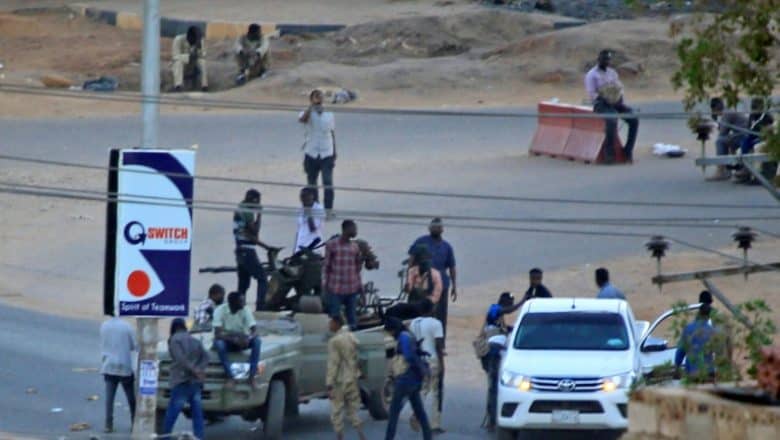Last updated on September 11th, 2021 at 03:07 pm
Sudan said Wednesday that two soldiers were killed as government forces crushed a rebellion launched by agents of the country’s long-feared security agency against a restructuring plan.
On Tuesday, gunfire broke out Khartoum at two Khartoum bases of the Directorate of General Intelligence Service, formerly known as the National Intelligence and Security Service, after some of its agents rejected a retirement plan proposed by the country’s new authorities.
NISS agents were at the forefront of a crackdown on protesters during a nationwide uprising that led to the ouster of longtime autocrat Omar al-Bashir last April.
Late on Tuesday, troops from the regular army and from the paramilitary Rapid Support Force (RSF) stormed the bases amid heavy gunfire.
“We decided to storm the bases to end this rebellion… We have now taken control of these bases,” Sudan’s chief of staff Lieutenant General Osman Mohamed al-Hassan told reporters early on Wednesday.
“We lost two soldiers and four others including two officers have been wounded.”
Government spokesman Faisal Mohamed Saleh said the rebellion was launched by some NISS agents who rejected the amount of money alloted for taking retirement.
“We will not allow any coup against the Sudanese revolution,” said the chairman of Sudan’s ruling council, General Abdel Fattah al-Burhan, speaking alongside the chief of staff.
“We will protect this transition term and anyone who tries to disturb the security and stability of citizens will be defeated.”
Since August, Sudan has been ruled by the joint civilian-military body headed by Burhan, with day-to-day affairs run by Prime Minister Abdalla Hamdok’s government.
The ruling body is tasked with overseeing a transition to civilian rule as demanded by the protesters who ended Bashir’s 30-year rule.
Burhan’s deputy, RSF commander General Mohamed Hamdan Daglo, has blamed the former NISS chief for the rebellion.
“What happened today is a plan by Salah Ghosh and some other officers,” Daglo told reporters in the South Sudanese capital of Juba.
Ghosh, a key figure in Bashir’s regime, stepped down days after the veteran leader was toppled. His whereabouts are unknown.

